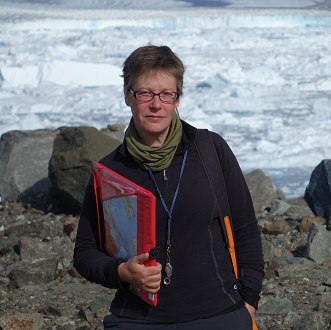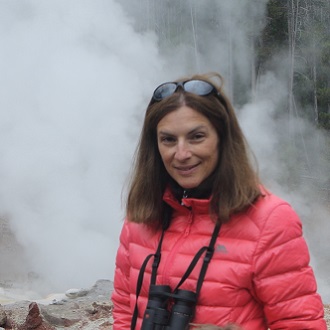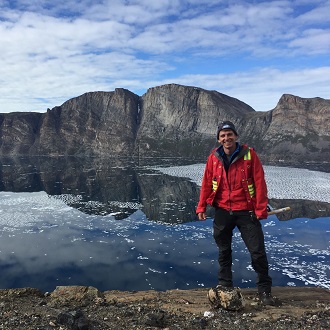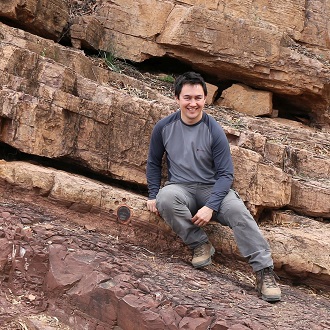Our Course Lecturers
From the beginning of your course, you will be taught by world-leading experts, who are active in research across all areas of the Earth Sciences. Most teaching staff also belong to a college, and teach the Earth Sciences students from their college in small-group supervisions.
|
Professor Marian HolnessMarian studies ancient magmatic intrusions in Greenland and Scotland, and compares them with recent material ejected from active volcanoes in the Aegean and Iceland. A rock's texture records much of its history and she decodes this using microscopic observation of translucent thin slices. She is interested in the information preserved by the way in which mineral grains fit together in rocks. |
Professor Marie EdmondsMarie studies the physics and chemistry of volcanic eruptions. Volcanoes are vents for gases and lavas, whose chemistry allows us to infer the structure and composition of the Earth's interior. Explosive volcanic eruptions pose a significant hazard to populations living nearby, and therefore it is crucial to understand how they are triggered and sustained. Gases from volcanoes are an important regulator of atmospheric composition, and large eruptions can affect global climate. The amount of gases contained in magma (molten rock) and the way in which bubbles form and rise through it are important controls on the style of volcanic eruptions. |
|
Dr Owen WellerOwen compares ancient mountain building processes in the Canadian Arctic with active processes in the Himalayas to unravel how plate tectonic mechanisms have changed through time. He primarily studies metamorphic rocks, as their mineral assemblages, compositions and inclusions provide a time capsule that can be analysed to reveal both the timing and conditions of their formation. Integrated with careful field studies, the history of the Earth can be decoded. Owen, a Fellow of Sidney Sussex College, teaches structural geology and metamorphic petrology. |
Dr Alex LiuAlex studies the fossils and sedimentary rocks of the Ediacaran Period, to reconstruct ancient ecosystems and environments at the dawn of animal life. Determining what the original organisms represented by Ediacaran fossils were (early animals, algae, or entirely extinct groups) has been a major challenge for researchers for many decades, since they look so unlike anything alive today. Alex combines fieldwork in Canada, Australia and Brazil with laboratory experiments to decode the identity of these organisms, and to investigate the reasons for their (geologically) sudden appearance ~580 million years ago. Alex, a Fellow of Girton College, teaches courses on palaeobiology and sedimentology. |




